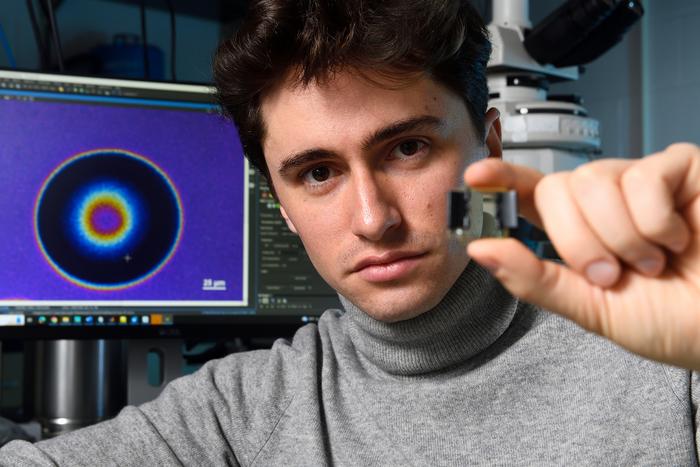
The Wake Forest Institute for Regenerative Medicine (WFIRM) is a research institute affiliated with Wake Forest School of Medicine and located in Winston-Salem, North Carolina, United States.
The Latest Bing News on:
Wake Forest Institute for Regenerative Medicine (WFIRM) Research
- This NC region is a hub for fast-growing tech and science startups
With a prime location adjacent to the Research Triangle, the Carolina Core’s life sciences economy is thriving as Syngenta and other leading firms expand here.
- ReMDO Unveils Regulatory NavigatOR: A Guide through the Regenerative Medicine Regulatory Landscape
The RegenMed Development Organization (ReMDO) announced today a new initiative titled Regulatory NavigatOR: a groundbreaking space aimed at providing unparalleled regulatory and scientific counsel to ...
- ASGCT: In utero interventions can prevent organ damage after birth
a professor at the Fetal Research and Therapy Center of the Wake Forest Institute for Regenerative Medicine in Winston-Salem, North Carolina. At the American Society of Gene & Cell Therapy (ASGCT) ...
- Dr. Anthony Atala to Give Pritchett Endowed Lecture in Pathology on Regenerative Medicine
Dr. Anthony Atala is the director of the Wake Forest Institute for Regenerative Medicine, and the W.H. Boyce Professor and Chair of the Department of Urology at Wake Forest University, where his work ...
- Wake Forest men's basketball adds two more transfers for this coming season
Wake Forest has picked up two players out of the transfer portal as Coach Steve Forbes continues to restock his roster. The Demon Deacons, who have lost two starters to the portal, have ...
The Latest Bing News on:
Wake Forest Institute for Regenerative Medicine (WFIRM) Discovery
- This NC region is a hub for fast-growing tech and science startups
With a prime location adjacent to the Research Triangle, the Carolina Core’s life sciences economy is thriving as Syngenta and other leading firms expand here.
- ReMDO Unveils Regulatory NavigatOR: A Guide through the Regenerative Medicine Regulatory Landscape
The RegenMed Development Organization (ReMDO) announced today a new initiative titled Regulatory NavigatOR: a groundbreaking space aimed at providing unparalleled regulatory and scientific counsel to ...
- How Atrium Health Wake Forest Baptist team member’s heart condition inspired a career in research
Stephanie Bowden was only 11 years old when she was diagnosed with hypertrophic cardiomyopathy (HCM), an inherited condition that causes the heart muscles to thicken abnormally. Three years later, she ...
- ASGCT: In utero interventions can prevent organ damage after birth
a professor at the Fetal Research and Therapy Center of the Wake Forest Institute for Regenerative Medicine in Winston-Salem, North Carolina. At the American Society of Gene & Cell Therapy (ASGCT) ...
- Wake Forest men's basketball adds two more transfers for this coming season
Wake Forest has picked up two players out of the transfer portal as Coach Steve Forbes continues to restock his roster. The Demon Deacons, who have lost two starters to the portal, have ...










